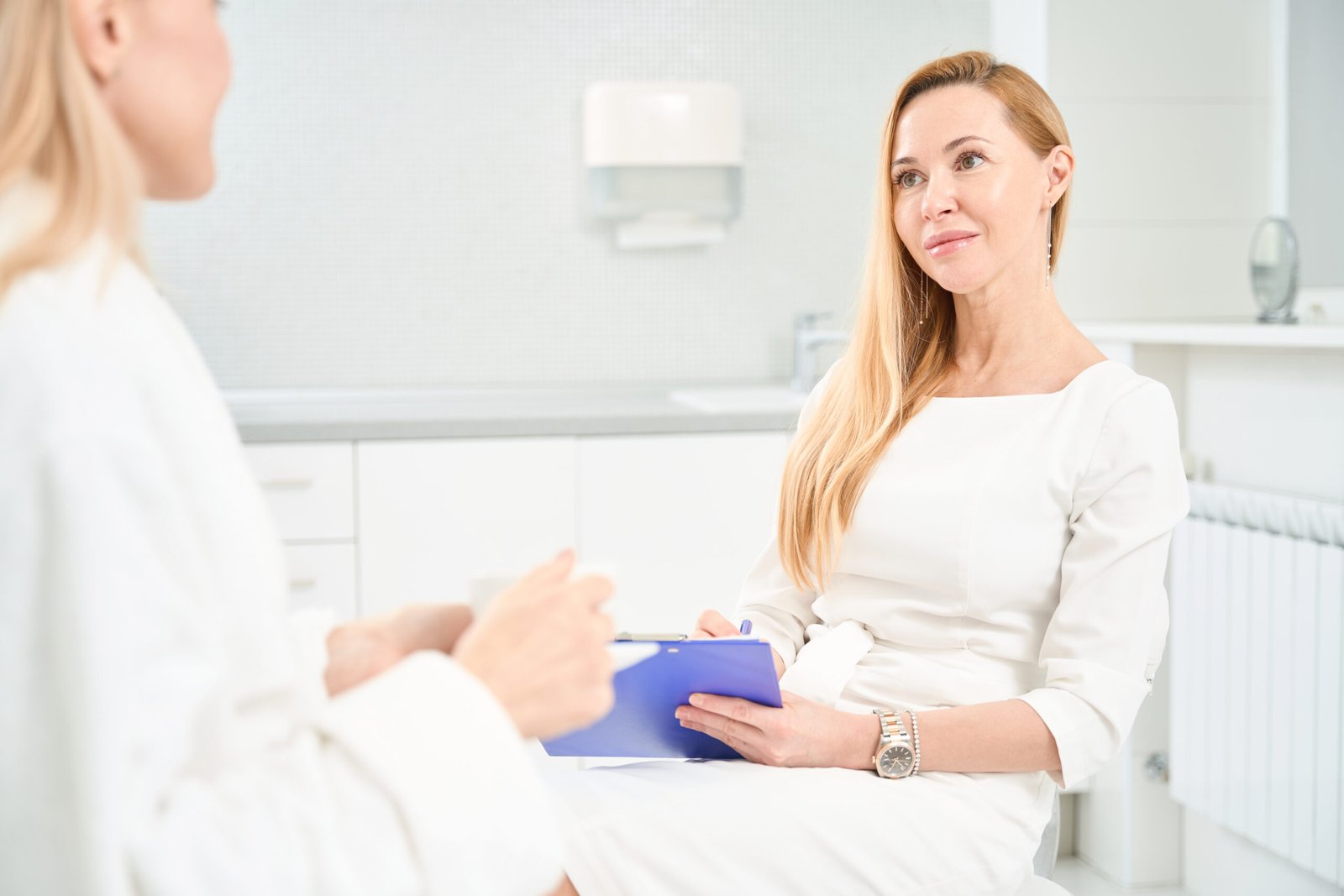
Perimenopause is a transitional phase that precedes menopause, lasting several years as women approach the end of their reproductive years. This stage typically begins in a woman’s 40s, although it can start earlier for some individuals. During perimenopause, the production of hormones such as estrogen and progesterone fluctuates significantly, leading to various physiological and emotional changes. These hormonal shifts are crucial in understanding how to get libido back and why it might be hindered during this period.
The decline in estrogen, in particular, is linked to a range of noticeable effects on female libido. Estrogen plays a vital role in regulating sexual desire, and as levels drop, many women may find that their sexual appetite diminishes. Additionally, progesterone, which supports various bodily functions, also decreases during perimenopause, contributing to changes in libido. The interplay of these hormonal changes can create a perfect storm, resulting in decreased sexual desire.
Furthermore, perimenopause is often accompanied by several common symptoms that can further impact sexual desire. Women may experience mood fluctuations, including anxiety or depression, which can adversely affect their interest in intimate relationships. Fatigue is another prevalent symptom during this stage, leading to a notable decrease in energy levels, further diminished libido might result. Additionally, physical discomfort, such as vaginal dryness or changes in sensitivity, can also deter women from engaging in sexual activity, making it necessary to address these issues to restore sexual interest.
In summary, understanding perimenopause and its accompanying hormonal changes is essential for recognizing how these factors impact libido. Identifying and addressing the symptoms associated with this transitional phase can aid in effectively navigating the complexities of sexual desire during this significant time in a woman’s life.
The Biological Reasons Behind Libido Changes
During the perimenopausal phase, which typically occurs in women in their 40s, hormonal fluctuations play a significant role in altering libido. One of the primary hormones affected is estrogen, which decreases significantly during this transitional period. Estrogen is crucial not only for reproductive health but also for maintaining sexual desire. As levels of this hormone decline, women may experience various physical changes that can negatively impact libido. For instance, decreased estrogen can lead to vaginal dryness and discomfort during intercourse, thereby reducing the motivation for sexual activity. This physiological response often correlates with a decrease in overall sexual satisfaction.
Furthermore, lower estrogen levels can disrupt the balance of other hormones, such as testosterone, which also contributes to sexual desire. Although commonly associated with men, testosterone plays a vital role in female libido as well. Its decreased production during perimenopause can result in a noticeable reduction in sexual interest and energy. Moreover, the reduction in estrogen also affects blood flow and sensitivity in the genital region, resulting in diminished arousal and pleasure.
In addition to these hormonal changes, the psychological impacts of perimenopause can further complicate libido. Women may experience mood swings, anxiety, or depressive symptoms attributed to fluctuating hormone levels. These psychological factors can exacerbate feelings of unattractiveness or a lack of desire for intimacy, creating a cycle where hormonal and emotional influences feed into each other, leading to an even more pronounced lack of interest in sexual activity. Understanding these biological and psychological dimensions is essential in addressing how to get libido back during this life stage. By acknowledging these complexities, women can better navigate the challenges of perimenopause and seek appropriate solutions tailored to their individual needs.
Tips to Improve Libido During Perimenopause
Perimenopause can bring about significant changes in libido, leading many women to seek solutions to restore a more fulfilling sexual life. Here are several practical strategies that can help boost libido during this transitional phase.
First and foremost, maintaining a healthy lifestyle is essential. A balanced diet rich in nutrients can improve overall well-being and energy levels, subsequently enhancing sexual desire. Regular exercise is equally vital as it increases blood flow, decreases stress, and promotes a better mood, which can all contribute positively to libido. Activities such as yoga and pilates not only improve physical health but can also help create a greater sense of body awareness and confidence.
Open communication with partners is another crucial factor. Discussing sexual needs and desires fosters intimacy and helps partners understand one another better. It can also alleviate pressure during sexual encounters, making them feel more natural and enjoyable. Engage in conversations about what both partners find pleasurable, and do not hesitate to express any concerns regarding libido changes.
Another approach is to explore new ways to enhance intimacy. Engaging in non-sexual physical affection, such as cuddling or massages, can create a deeper emotional connection, which may, in turn, improve sexual desire. Moreover, trying new activities together can reignite the spark in a relationship, making it easier to rekindle libido.
Considering supplements or treatments that alleviate symptoms of perimenopause may also be beneficial. Natural options, such as herbal remedies, can support hormonal balance, which might help restore libido levels. However, it is essential to consult with a healthcare professional to ensure any supplement is safe and appropriate.
Lastly, seeking professional guidance can provide valuable insights. Healthcare providers can offer tailored advice regarding hormonal therapy options, counseling, and other treatments that may help manage the symptoms of perimenopause. With the right support and strategies, women can address the challenges of maintaining libido during this life stage.
Conclusion and Encouragement for Women
It is essential to recognize that experiencing changes in libido during perimenopause is a common situation that many women encounter. As hormone levels fluctuate and the body undergoes significant changes, it is natural for sexual desire to shift as well. Understanding these changes is crucial in order to approach them proactively rather than with apprehension. Women often find themselves questioning why they may be losing interest in sex or wondering how to get libido back to where it once was. This realization can sometimes lead to feelings of isolation or confusion, but it is important to note that you are not alone.
Open communication with partners is vital during this transitional phase. Discussing feelings and concerns can alleviate worries and create a supportive atmosphere where both partners can express their needs. Additionally, friends and family can serve as essential support systems, providing comfort and shared experiences. Furthermore, seeking advice and support from healthcare professionals can offer insights into potential solutions for adjusting to the changes in libido. There are various approaches, ranging from lifestyle changes to hormonal therapies, that may assist in navigating this complex landscape of midlife health.
Encouraging women to embrace this phase of life with confidence is crucial. Rather than viewing perimenopause solely as a challenging period characterized by decreased libido, it can also present an opportunity for exploration and self-discovery. By fostering open discussions and seeking the appropriate support, women can empower themselves to reclaim their sexual health and navigate this life stage with grace. Ultimately, experiencing fluctuations in libido during perimenopause is just one part of a broader journey, and there are resources available to help in addressing these changes effectively.




